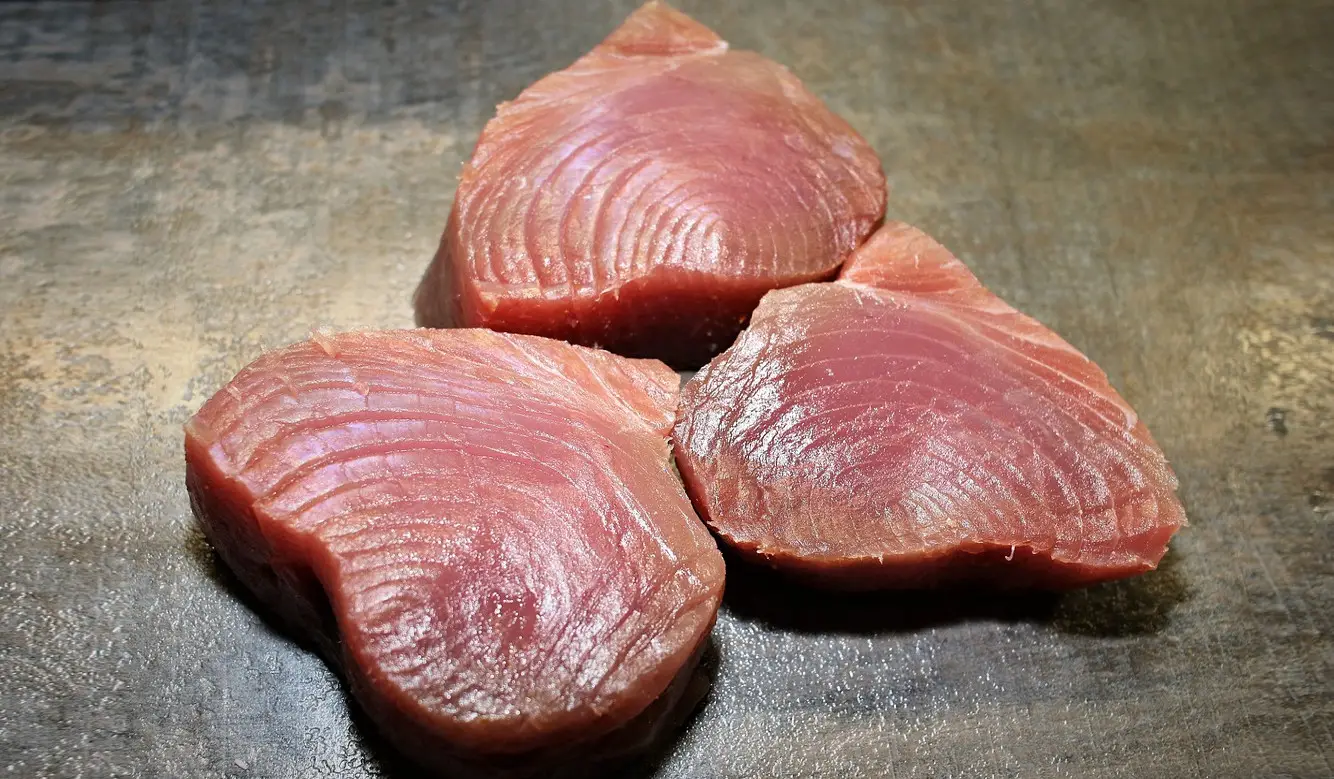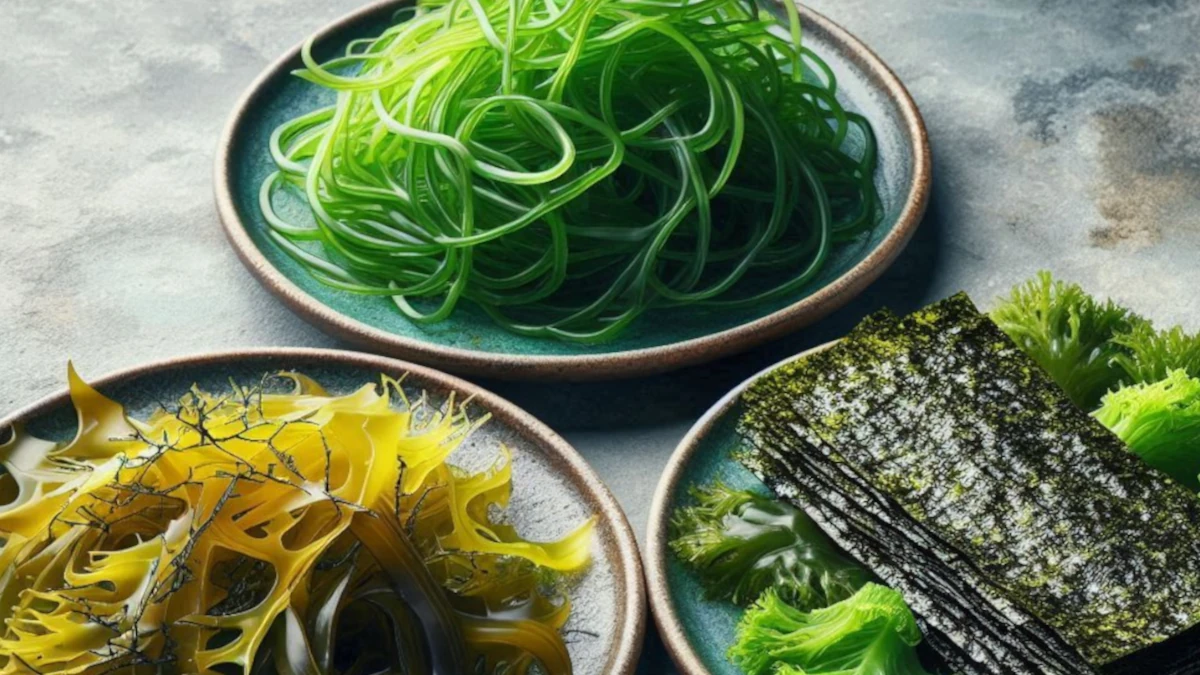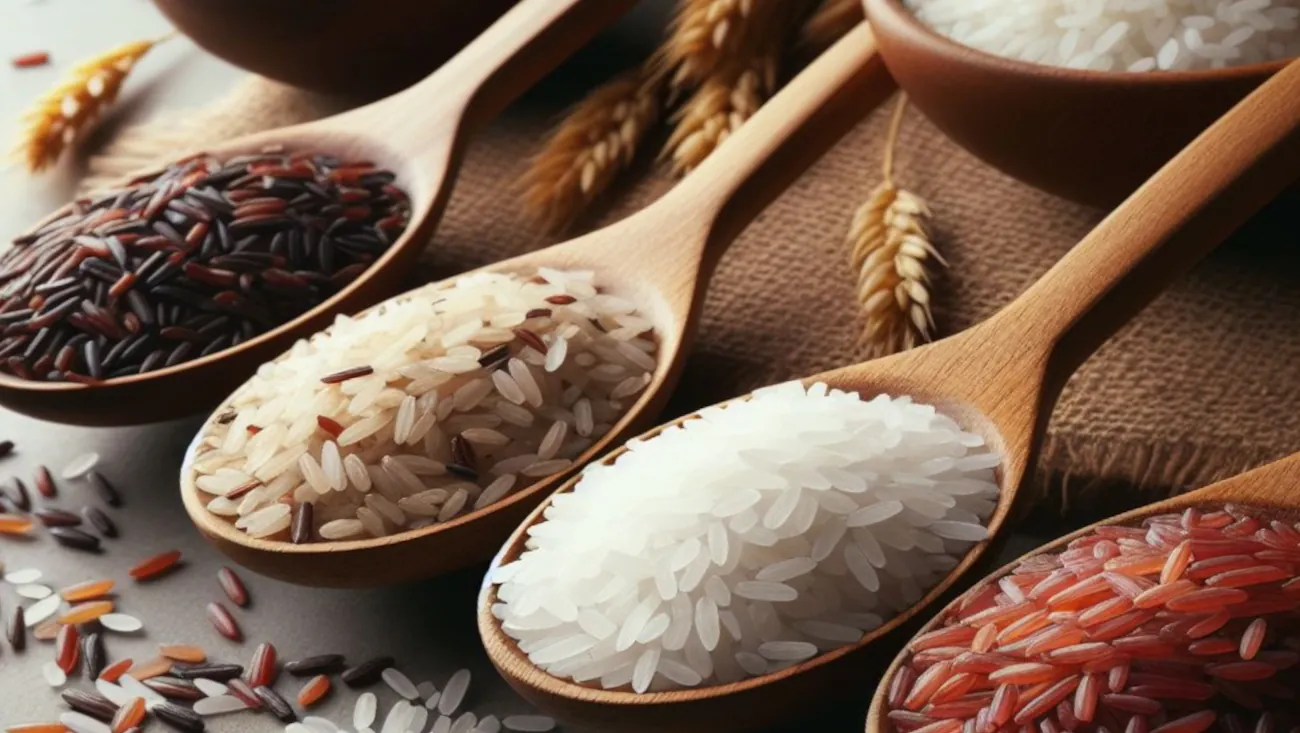Tuna Lysine and Arginine Info Sheet
Overview
Tuna is a large, migratory fish that belongs to the mackerel family.It has firm, pink or red flesh and a distinct flavor. Tuna is often sold canned in water or oil, or as fresh or frozen steaks or fillets.
Tuna is an excellent source of protein, omega-3 fatty acids, selenium, vitamin B12, and niacin.
It also contains mercury, a toxic metal that can accumulate in the body and cause neurological damage.
Tuna consumption should be limited to avoid mercury poisoning, especially for pregnant women and children.
| Name | Lysine (mg/100g) | Arginine (mg/100g) | Ratio |
|---|---|---|---|
| Tuna | 2715.15mg | 1769.7mg | 1.534 |
Tuna contains 2715.15mg of Lysine and 1769.7mg of Arginine per 100g of product.
This means Tuna has a high Lysine-Arginine ratio of 1.534.
Because Tuna contains much higher levels of lysine than arginine, it is highly recommended for people who suffer from herpes, as it may prevent outbreaks.
Lysine Considerations
Tuna is an excellent source of lysine. Lysine is an essential amino acid that supports immune function, collagen synthesis, and calcium absorption.
Tuna provides a very high amount of lysine, which may help prevent or treat cold sores, herpes, and osteoporosis.
Lysine has the potential to prevent or treat cold sores, which are blisters caused by the HSV-1 virus, also known as herpes.
Lysine operates by stunting the proliferation of HSV-1, which relies on another amino acid, arginine, to reproduce and infect cells.
Lysine can only be acquired through our diet, and is present in a variety of high-protein foods such as eggs, dairy products, fish, meat and poultry.
Arginine Considerations
Arginine is a semi-essential amino acid that plays a role in nitric oxide production, blood vessel dilation, wound healing, and growth hormone secretion.
Tuna provides a high amount of arginine, which may improve cardiovascular health, erectile function, and exercise performance.
Arginine can contribute to cold sore outbreaks, which are blisters caused by the HSV-1 virus, also known as herpes.
Arginine aids in the growth of HSV-1, which needs this particular amino acid to multiply and infect cells.
Arginine can be obtained through our diet, and is found in many high-protein foods such as nuts, seeds, and chocolate.
Regrettably, the herpes virus is known to "feed" on arginine, and a diet rich in arginine compared to lysine may increase the frequency and severity of cold sores and herpes outbreaks.
Lysine-Arginine Ratio
Tuna has a high lysine-arginine ratio, which may help inhibit viral replication and reduce the severity and frequency of herpes outbreaks.
Like most fish, tuna is an excellent source of lysine. A diet higher in lysine than arginine has been shown to aid in the prevention and management of herpes symptoms.
Both lysine and arginine play crucial roles in protein synthesis and other metabolic activities.
Interestingly, they have contrasting effects on the herpes simplex virus, which is responsible for cold sores and genital herpes.
Lysine can stunt the virus's ability to replicate, while arginine can promote it.
Consequently, consuming foods with a high lysine to arginine ratio may help decrease the frequency and severity of herpes symptoms.
Foods with a high lysine-arginine ratio include dairy products products, fish, poultry, fruits, and vegetables.
These foods can supply the body with sufficient lysine to block the virus's availability of arginine, thereby preventing its growth and spread.
Dietary Considerations
Fish is a great source of lysine, which can help stunt or lower herpes outbreaks.
Fish also contains omega-3 fatty acids, which can soothe inflammation and improve cardiovascular health.
Most fish have more lysine than arginine, but some fish have a higher ratio than others.
Salmon, catfish, whitefish, mackerel, trout, and sardines are some of the fish that have the most lysine compared to arginine.

For example:
A diverse and nutritious diet that supports your immune system and fights inflammation is essential.
This means you should eat lots of fruits, vegetables, whole grains, lean protein, and healthy fats, and steer clear of processed foods, added sugars, alcohol, and caffeine, which can harm your health.
Avoid alcoholic beverages and caffeine which can overstimulate your body, leave you dehydrated, and compromise your immune system.L-lysine supplementscan help you prevent herpes outbreaks and stop a cold sore before it develops by depriving the virus of arginine, which it needs to form a cold sore.
Taking other food supplements that can improve your immunity and protect your cells from oxidative stress, such as vitamin C, zinc, selenium, and antioxidants.
To prevent outbreaks, avoid foods that can cause allergic reactions or sensitivities, such as gluten, dairy, nuts, eggs, or shellfish.
These foods can harm your immune system and make inflammation worse.
Try eating foods that can enhance your immune system and reduce inflammation to avoid outbreaks.
Some of these foods are honey, yogurt, aloe vera, and chamomile.
They can also help you with your symptoms by easing pain, swelling, and itching, and accelerating your recovery.
Check more food information






